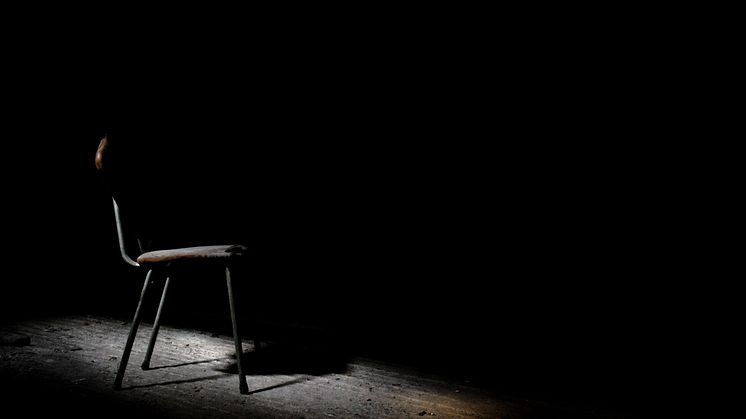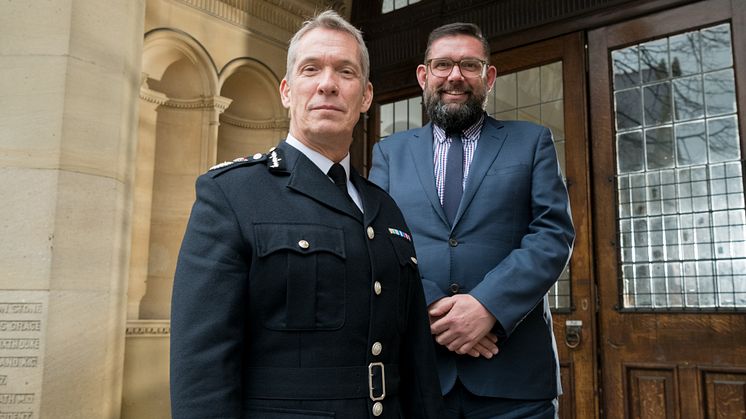
Press release -
Research helps police understand child to parent abuse more than ever before
Researchers have provided detailed insights and recommendations to help one of the UK’s largest police forces recognise, report and analyse instances of violence from children towards parents.
Northumbria Police commissioned a study to improve its understanding of the concept of child to parent violence and the associated risk, following a domestic homicide review of a case involving a mother and son.
At the time of this case, the young person involved was 16 years old, which meant the mother’s death was classed as domestic abuse. However, risks in cases such as this are usually present for many months or years before. Agencies need to act on this behaviour when it is first brought to their attention and work in partnership with others to minimise the long-term impact on families.
Researchers from Northumbria University and the Children’s Emotional Language and Thinking (CEL&T) organisation began working with Northumbria Police in 2018 to research what is often called Childhood Challenging Violent or Aggressive Behaviour (CCVAB).
The study aimed to explore better ways to understand child to parent violence and highlight the need to formally recognise this within law enforcement and social services. Their aim was to develop new ways to prevent such abuse in the home and provide appropriate support to families.
The results of their research have been made public this week and highlight that addressing CCVAB requires a multi-agency partnership approach.
The research team found a lack of coordination and information sharing between health, mental health, education, social care and criminal justice services. This meant that the police are often unaware of known concerns or follow-on actions that have been identified but are still required to respond to calls.
In particular, they found that link between school exclusion and attendance and incidents of CCVAB in the home requires further examination. They also identified the need for adult and child safeguarding teams to work more closely in these cases.
The study also recommends that recognising and recording CCVAB is an essential first step in understanding the extent and profile of this form of abuse.
The recommendations led to Northumbria Police becoming the first force in the country to manually record these cases in March 2019, responding to more than 500 calls in the first nine months. The data now being collected will help to piece together a much clearer picture of the scale of this problem. It is hoped that the systems the force has put into place in response to the findings will be rolled out at a national level.
Jeannine Hughes, a senior lecturer in Northumbria University’s Department of Social Work, Education and Community Wellbeing, has been researching domestic abuse for two decades and has a background in youth offending social work.
She explained: “We know that there are a lot of families living with this in silence. This is a form of abuse that exists, and we need to be able to provide targeted interventions to help people who find themselves in this situation. The police get called when it reaches crisis point, which is too late.
“As much as the police want to be able to help, we really need local authorities, health and education partners to be working together on an early response before such behaviours are entrenched. Without recording it accurately we can’t fully understand the scale of the problem or the underlying causes of this form of abuse.”
Jeannine added: “The recording of these statistics will help us to develop a much better understanding of the underlying causes of CCVAB and the key links to adversity. Importantly, it will also help agencies to collect the dots between cases and bring a focus back to local authorities and others. This will lead to a growing recognition for all those affected that this is something that many other families are experiencing and so they should not be afraid to talk about it and ask for help.”
Al Coates MBE, Director of CEL&T, added: “While the police service is willing to support families, they are being called out to incidents that they should not be called out to because of their need to respond. They are the service that can’t say ‘no’ and families are forced to turn to them when other services have not met their needs or are not available.
“Thanks to gathering this data, we now know that the force has responded to more than 500 call outs from parents and carers with crisis over a 9-month period, due to the violent and aggressive behaviour of the children in their homes.
“Our report builds on a steadily growing body of research that considers the underlying issues that impact on children who display extreme aggressive and violent behaviour. During this process we’ve been given access to records and, having worked as a social worker, I thought I’d become hardened to the challenges that children and families face. Yet I confess to being rendered speechless reading some of the incident reports. Stories of incredibly vulnerable children with mental ill health, special educational needs, substance misuse, adversity, trauma and more are all playing out in homes across the region.
“This is a complex issue that matters for many families. For every police call out, there are multiple incidents that don’t reach the extreme of 999 call hidden in a veil of silence. There is a need to change the discourse from one of problematising to one of support to enable this to happen and we hope that this report will help to shine a light into a dark room of many family lives.”
Dr Wendy Thorley, Director of CEL&T and a key exponent of the need for workers to consider the impact of Special Educational Needs and the Adverse Childhood Experiences, said: “There is a need to recognise that a child’s chronological age does not necessarily match the child’s developmental age, which can compound the challenges of managing the situations.”
Describing the research as “ground-breaking,” Detective Chief Inspector Louise Cass-Williams said: “It’s hard for victims to report abusive partners – let alone their own child. Child to parent abuse exists in many forms, it can be emotional or financial, it can see children damaging property or their home and, of course, it can be physical and violent. It’s in a parent’s nature to protect their child but sometimes it’s the parent, sibling or family member who needs to be protected from the child.
“This research is a vital first step in understanding this aspect of abuse more than ever before and making sure parents, carers and family members have the best possible support from police and every other agency. It is important that when dealing with cases of child to parent violence, there is a focus by police on appropriate intervention by partners rather than progressing solely down a criminal justice route.
“This study, and the systems Northumbria Police are implementing, mean we will now have the data to be able to do this at a regional level, and we hope that we will be able to translate these to a national level in due course.”
Northumbria Police have already taken part in multi-agency awareness raising sessions with their colleagues from the six local authority areas and have, since March, been referring cases on via the MASHs (Multi Agency Safeguarding Hubs) to allow partner agencies to review and offer appropriate intervention.
A full copy of the report is available to download.
Anyone who believes they may be experiencing challenging, violent or aggressive behaviours from their children is urged to contact police on 101. Always call 999 in an emergency.
Topics
Northumbria is a research-rich, business-focused, professional university with a global reputation for academic excellence. Find out more about us at www.northumbria.ac.uk --- Please contact our Media and Communications team at media.communications@northumbria.ac.uk with any media enquiries or interview requests ---








